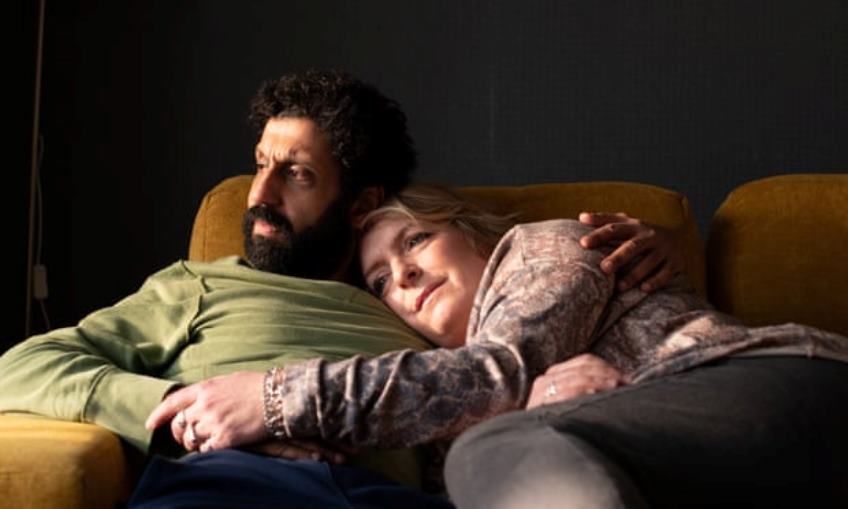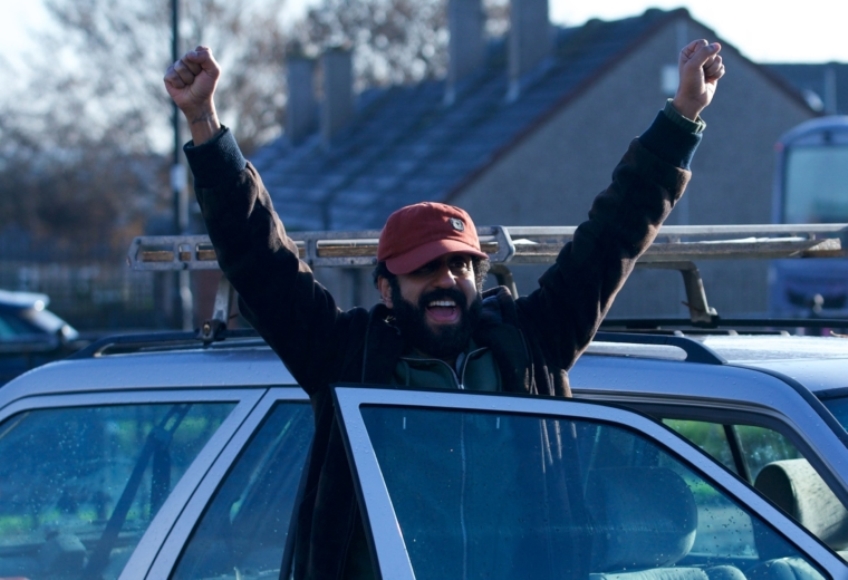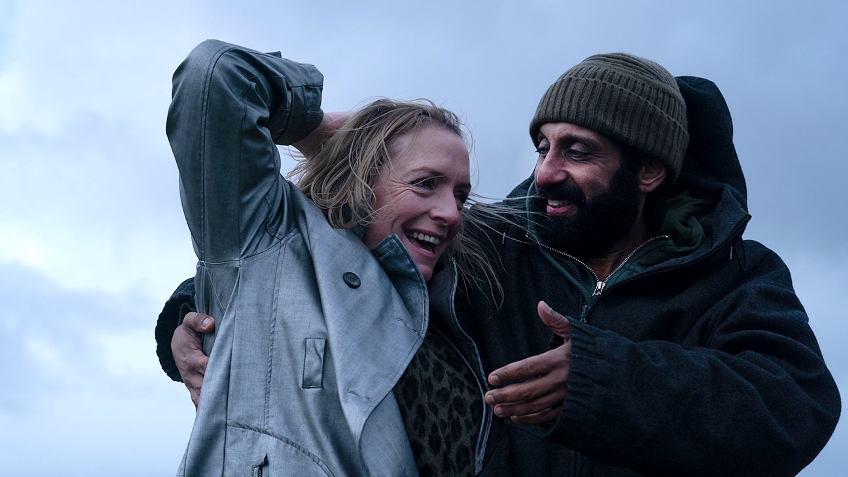Joyce Glasser reviews Ali & Ava (March 1, 2022) Cert 15, 94 mins.
Bradford writer-director Clio Barnard’s multicultural love story is set in Bradford where Bernard set her exciting, experimental feature debut The Arbor, about the Bradford born playwright, Andrea Dunbar. Barnard set her next film, the more conventional, social-realistic adaptation of Oscar Wilde’s short story The Selfish Giant and her 2018, trouble-at-the-farm melodrama Dark River close by Bradford.
Ali & Ava is Bernard’s most conventional film yet, but again grounded in place, with Bradford recognisable both in the architecture, the people, the surrounding green vantage points and in the melting pot atmosphere, with good performances from two British staples who have never had romantic lead roles before. Adeel Akhtar (Four Lions, TV’s Murdered by My Father) and Claire Rushbrook, whose face is familiar from numerous supporting parts in films and television programmes. Interestingly, she played the factory worker Brenda Blethyn’s street sweeper daughter in Mike Leigh’s Secrets and Lies.
That said, unless you connect to life through headphones, the characters are not particularly interesting, their stories are banal and their love affair unconvincing.

Barnard makes the two protagonists’ family backgrounds about as messy and complicated as possible, perhaps to reflect the reality of life in Bradford and the diversity of its inhabitants while bucking some of the stereotypes about race and class. Ava, the daughter of Irish Republications who opposed the English, is white, but got pregnant young, and has had what seems like four children from two husbands, the last of whom was an abusive bully. She works as a teaching assistant, apparently for just one little girl, Sofia (Ariana Bodorova), with special needs, which is pretty impressive if the Council pays for this one-on-one care.
Although it’s a tad confusing, Ali seems to be employed managing his extended family’s properties, dispelling the stereotype that since he’s part Pakistani, he should be living in a housing estate on the wrong side of town where white Ave lives. Another myth is dispelled when we learn Ali loves music, has a huge collection of vinyl records, plays the guitar and used to be a DJ. He’s about as far as you can get from one of these British bashing fundamentalists who shuns music and is being groomed in a mosque. When Ali goes into a trance, he is dancing on top of his car, dry strumming on a phantom guitar to the music in his earphones. Does anyone really do that?
The surprises keep coming. Ali has a wife, Runa (Ellora Torchia) not from an arranged marriage, but from a love match, only the two have already gone separate ways, although he is still in love. To buck another stereotype, Runa is diligently working towards a university degree, and we get the impression she is eager to get out of Bradford.
Ali has enough time, and goodness, to collect Sofia, whose family live in one of his property’s, from school – and that’s how he meets Ava.
Here’s where Bernard overdoes it with her determination to blow away the stereotypes. Not only is Runa always seen studying, but Ali shows Ava his book collection (as well as his guitar, which he plays) and she tells him she went to university after she kicked out her abusive partner and got a degree. She even displays her thesis! God, forbid we think working class folk on notorious housing estates or Pakistani landlords are empty headed philistines.
Bernard has not rid Bradford of all the stereotypes. Ava’s son Callum (Shaun Thomas, from Barnard’s The Selfish Giant), a young father in his early 20s who lives with Ava part-time, still owns the boots that, Ava tells Ali, her abusive husband wore when he kicked her. Ava spared Callum the truth of their relationship, but when he learns it, he changes from a confrontational, racist thug, a bit like his father, into a different man.
If Barnard’s last film, Dark River, was about as dark as they come, Ali & Ava is optimistic and full of such fluffy warmth and forgive-and-forget reconciliations. So much of the plot involves creating conflict to keep the two lovers apart, that when all the barriers crumble without much trouble, you begin to feel you’ve been had.
Equally disappointing is that the relationship is supposed to be endearing and uplifting because they are such opposites, but both in need of love. Yet their love fails to convince, and not just because there is zero chemistry between the two.

As Akhtar is only nine years younger than Rushbrook you can’t make much of the age gap, even if Ali acts and lives like a 25-year-old. What do they have in common? Not even their taste in music it turns out, although we see them hooked up to earphones dancing around Ava’s house laughing in what is a lazy way to show love. Much of the romance is shot in montage format except when they each visit one another’s homes and learn that they are educated to some degree, phew!
Although we are told the film was inspired by two real-life people Barnard met in Bradford, Ali & Ava cannot escape comparisons (which Bernard herself invites by the title) to Rainer Werner Fassbinder’s 1973 masterpiece, Ali: Fear Eats the Soul. Set in the 1970s, it is about a Muslim guest worker in Germany, the lowest of the low on the social scale, and his relationship with a much older German widow with a racist family who want to protect their inheritance. The two meet in a bar where they dance, and so the music connection is there from the start.
Of course Ali and Ava have a relationship of equals, whereas Fassbinder’s film is made more complex and richer by the suspicions that both characters are using the other, particularly Ali. Fassbinder’s dark movie explores a very different kind of love and all the more fascinating, memorable and profound for it.




